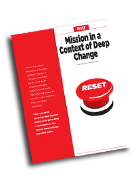 Are you looking for a computer program to help you as you raise missionary support? TntMPD is a free computer program designed by missionaries to help missionaries manage their list of financial partners. It tracks the key information and giving history of your ministry partners and reminds you to contact them. It works with Microsoft Outlook and other applications to send email. It is available in Mac and Windows platforms. Visit the TntWare website to learn more and download.
Are you looking for a computer program to help you as you raise missionary support? TntMPD is a free computer program designed by missionaries to help missionaries manage their list of financial partners. It tracks the key information and giving history of your ministry partners and reminds you to contact them. It works with Microsoft Outlook and other applications to send email. It is available in Mac and Windows platforms. Visit the TntWare website to learn more and download.
 About Jonathan Parsons
About Jonathan Parsons
Change in Missions
 Steve Moore at The Mission Exchange has written a great article about change and our current environment in missions. His purpose is to set the tone for the 2011 North American Mission Leaders Conference, but even those who aren’t planning to attend this event would be well served to give this article a read. Steve argues that we are on the precipice of great change in missions. Our world is rapidly changing and missions agencies are part of this change. The economic times in which we live are those which have historically caused “reset” moments that brought about great change. He explores three main concepts:
Steve Moore at The Mission Exchange has written a great article about change and our current environment in missions. His purpose is to set the tone for the 2011 North American Mission Leaders Conference, but even those who aren’t planning to attend this event would be well served to give this article a read. Steve argues that we are on the precipice of great change in missions. Our world is rapidly changing and missions agencies are part of this change. The economic times in which we live are those which have historically caused “reset” moments that brought about great change. He explores three main concepts:
- Sand Pile Effect (unpredictable interconnectedness) – how one small thing can cause an avalanche of change
- IED Effect (asymmetrical influence) – how small, unestablished organizations can be major players
- Jailbreak Effect (open-source creativity) – how breakthrough ideas can come from those we don’t consider experts
He asks three key questions:
- How do we fund the Great Commission?
- How do mission organizations and local churches work together in the Great Commission?
- How does the North American church relate effectively with the church in the majority world?
Missionary Emergency Information Template
There are several things that you can do now that will help during and emergency. One important thing is to keep your information up to date with your teammates and the mission office. A simple way to collect various types of information is a Microsoft Word document, or DOC file. This common file type may be used to store text, pictures, maps, drawings, and more. It can also be viewed and edited on any computer and most smartphones and mobile devices. It does not require an internet connection or database skills, but can easily be emailed or stored on a USB drive. Here is a sample Emergency Information Form that you could complete and send to your teammates and supervisor. Download as DOC or PDF.
Guide to Tires
Are you looking for a guide to help you select the proper tire or maybe just understand tires better? Toyota Gibraltar Stockholdings (TGS) has produced a great quick reference for tires, especially for those suited to the Toyota Land Cruisers. Click here to download or view the TGS Tyre Guide.
Luggage Ready for Action
 Instead of carrying a traditional suitcase or duffel bag, many missionaries use trunks or foot lockers as luggage. They are made to carry heavy loads and withstand abuse. They are affordable and have many uses on the mission field for carrying equipment. You can stand or sit on them, they can hold water, keep out dirt, and clean them with a water hose. Here are links to two popular models. Conitco and Rubbermaid Action Packer
Instead of carrying a traditional suitcase or duffel bag, many missionaries use trunks or foot lockers as luggage. They are made to carry heavy loads and withstand abuse. They are affordable and have many uses on the mission field for carrying equipment. You can stand or sit on them, they can hold water, keep out dirt, and clean them with a water hose. Here are links to two popular models. Conitco and Rubbermaid Action Packer
Registering with the Embassy
As you move to another country, it is important to register with your country’s embassy. Registration with the embassy will allow them to contact you in the event of an emergency, notify you about other events, verify your presence there, and help them serve you better. You can register online through the State Department’s Smart Traveler Enrollment Program (STEP). Visit the online registration site.
Things to Learn in Your First Month on the Field
 Now that you have what you need to survive, it’s time to buckle down and become a learner. You need to meet people, ask questions, and write things down. Here is a simple list to get you started. This is taken from “Getting Acquainted with Your New Home” by Orville Jenkins.
Now that you have what you need to survive, it’s time to buckle down and become a learner. You need to meet people, ask questions, and write things down. Here is a simple list to get you started. This is taken from “Getting Acquainted with Your New Home” by Orville Jenkins.
Things to learn
- How do I say hello?
- How do I say goodbye?
- How, what, and when do people eat?
- How to behave as a guest in someone’s house?
- How much space is personal space?
- How late is late?
- What is immodest?
- What clothing is appropriate?
- What are appropriate and inappropriate relationships toward the opposite sex?
- What are appropriate and inappropriate gestures?
- What are appropriate and inappropriate forms of physical contact?
- What are the roles of family members?
- What are the rites or special occasions during someone’s life?
- What are the defining parts of the history?
- What aspects of history or politics should not be discussed?
- Who are the majors heroes or figures who have shaped the nation?
- When are the holidays?
- What is the structure of the government?
- When are the elections?
- What is the relationship between the national and local government?
- What are the major political parties?
- What are the titles for those in authority?
- What is the legal process?
- How should I respond towards the police?
- What things would I need permission for?
- What rights do I have?
- What should I do if I am involved in a vehicle accident?
- What should I do if my house is broken into?
- What is the budget for an average family for one month?
- What are the main industries?
- What is the main source of news?
- What magazines are widely read?
- What are the major radio stations?
- What are the marriage customs?
- What are the burial customs?
- What are the religious customs?
- Where are the places of worship?
- What are the folk beliefs?
Things To Do In Your First Week On the Field

Get legal
- How long can I stay in the country?
- What documents should I carry with me?
- What documents do I need to drive?
- What taxes, fee, or duties will I need to pay?
- What should I do in case of an accident or emergency?
- What laws relate to hiring workers?
- Register with the embassy
Get online
- Get a mobile phone
- Get an internet connection
Get money
- How can I change dollars to local currency?
- Is it recommended to use credit or debit cards?
- Where is an ATM machine?
- How will I receive my financial support?
- What expenses may be reimbursed and what is the procedure?
- Will I have a cash advance for work or medical treatment?
Get moved in
- Where will I live?
- Will I have house help, yard workers, or a guard?
- Are there any crime or safety issues related to my residence?
- How much are monthly utility costs?
- What should I do if there are housing or utility problems?
Get around
- Where should I shop?
- How much should I expect to pay for common goods? Should I bargain?
Get prepared
- Where is the hospital or clinic?
- Where is the pharmacy?
- What doctors do you recommend?
- Where is a safe place I can go if case of emergency?
Learning a Language
So, you’ve found a language helper, a computer language learning program, and carved out significant time to learn the language. Now, where do you start? How do you move beyond the textbook, software, or classroom, and get involved in the main event, meaning conversation and everyday life? Here are some great resources from Orville Jenkins on language learning.
Language Learning Activities
- Learning how to eat out
- Learning how to ride the bus
- Learning to shop
- Learning about the family
- Learning how to introduce yourself
- Learning how to interview others
- Learning common church phrases
- Observing a church service
- Learning to share your testimony
- Memorizing scripture
- Leading a devotion
- Visiting another location
Learning Activity Guides
Evaluating Language Learning
General Information
Anatomy of Spoken Language
Have you ever wondered how to get your mouth to make the sound you are attempting to learn in a new language. The figures below show how you mouth and vocal tract produce sounds. The touch, lips, teeth, control the air pass through the mouth to produce certain sounds. The images below show the main parts of the mouth and where each vowel sound is produced. See this article for more information about how sounds are produced. See an audio IPA chart.

This interactive diagram is from Phonetics: The Sounds of Spoken Language
